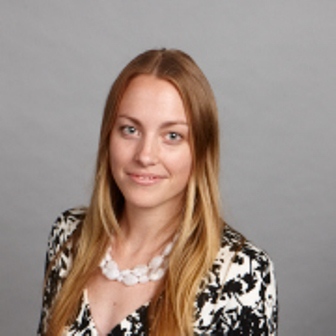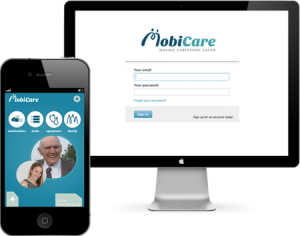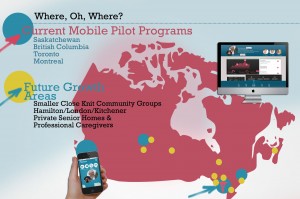Samantha Juraschka: Successful Business Woman
Sylvia: Hi Samantha. How awesome to meet you. Thank you for taking time out of your busy day to interview with me. Please tell us about yourself and your business?
Samantha: Hello Sylvia, I am Samantha Juraschka, a Toronto based entrepreneur, trying to make a meaningful impact on the community and in business. I am the founder and Chief Operating Officer of MobiCare a Health Technology Start-up for people that are living and caring for Alzheimer’s. After University I was selected as one of the Next 36 Entrepreneurial leaders in Canada, which was an incubator style program that enables Canada’s next leaders to build a mobile/web business with 50k of seed capital and CEO level mentorship. After Next 36, I chose to continue building MobiCare, and we have grown quite substantially in our first year, after we released our first product for Alzheimer’s Caregivers.
Sylvia: First, congratulations on such a tremendous honor of being selected in the Next 36 program and the opportunities that came from your involvement. Tell me about the feedback you’ve gotten from those who use MobiCare device? What are your future plans for MobiCare?
Samantha: What is different about health tech, especially focusing on the Alzheimer’s market is that we have found caregivers typically want to be involved in the iteration process, which is extremely exciting for us. We initially developed our product for the 25-55 year old seeing as they would be the first to adopt a smart phone, but with our research we have found that an increasing number of 55+ are interested in using the platform, but don’t want to learn a new behaviour such as a mobile phone. This made us rethink the mobile app, and think of ways we could integrate a typical journal into the online platform. We are now working with a company in California, who are helping us create journals that can be uploaded with a technology similar to what we are used to with QR codes.
Sylvia: What does success mean to you?
Samantha: It’s funny that I often associated success to a dollar value when I first graduated from business school. I learned quickly that if I measured success this way, I would never be happy for quite a long time. It wasn’t until I started my own company that I recognized success could be measured by the smallest things around you. For example, today I received a moving email from an Alzheimer’s caregiver that is so overwhelmed and appreciative that someone is trying to help her manage her responsibilities and tasks, or that feeling you get when you and your team reach a goal or target.
I really see success as the positive impact you can have on someone else.
Sylvia: Wow, I like your view on success! As you may know, people measure success in many different ways. I believe that when you look at it in terms of the impact that you are making on those around you… that is the core of the definition. For example, in your initial email to me, you said,
“I have been following your magazine for a couple months now, and I have been impressed about how empowering it has been for me as a female entrepreneur.”
Well, I was very touched! Your comment truly justify the many hours I spend each week in maintaining and keeping my blog relevant. It’s empowering to know that the resources I provide almost daily is valuable to my readers. For me, that’s success! So, how do you create work-life balance?
Samantha: I balance my work/life by scheduling time for myself. In my case unless it is written down, I probably won’t do it. I find when I schedule things like the meetings I have during the day I take them more seriously. I also share these times and dates with my co-workers, not only to encourage them to do the same, but also to prevent them from interrupting me during my personal or family time.
Sylvia: Do you have any favorite online tools or apps to help you in managing your time?
Samantha: I use google calendar with my team and have a Monday morning action list on a shared spread sheet. The action list is simply a way to lay out the tasks that have to be done each week and it allows my team to organize who is accountable for what, and when it should be accomplished by. Having this out in the open forces work to get done, and forces the team to take responsibility and be accountable! It is old fashioned, but it works.
Sylvia: What steps are necessary for a woman entrepreneur who wants to move her business to the next level?
Samantha: I believe that you need to recognize the importance of a team, to take it to the next level you certainly can’t do it alone. Whether that be developing partnerships or getting more people in your organization, you will need allies. In addition, you have to recognize that everyone has a unique perspective, and you have to be open to hear other opinions.
Sylvia: You are right! It’s important for women in business to connect and collaborate; to build that team and to know that YOU are not alone. It is imperative that we give back. In what way do you give back to your community?
Samantha: I purposely started a business that had a social cause as well. We are not only fuelled by a business opportunity, but through a personal connection my team has with Alzheimer’s. We are trying to make difference in the Alzheimer’s community through our product and by hosting caregiver meet-ups where we host nights off for caregivers and allow them to learn from each other and socialize. I also think its incredibly important to “pay it forward”, and my University had provided me with a number of opportunities, so I make a point to mentor current students and give money to scholarship programs when I can.
Sylvia: I commend you for acknowledging the importance of ‘Paying it Forward.’ So very important! What steps do you think are necessary for an entrepreneur who wants to move her business to the next level?
Samantha: You need to recognize the importance of a team, to take it to the next level you certainly can’t do it alone. Whether that be developing partnerships or getting more people in your organization, you will need allies. In addition, you have to recognize that everyone has a unique perspective, and you have to be open to hear other opinions.
Sylvia: What challenges and opportunities do you see in the present economic environment?
Samantha: With the unemployment rates that currently exist for the younger generation, it is the perfect opportunity to create your own job. We can increase our own nation’s prosperity by developing products and services that can stimulate the economy. In North America, there are a number of grants for female entrepreneurs that significantly subsidize the cost of starting a business from scratch.
Sylvia: Well, as for grants or FREE MONEY, there are a lot of misinformation and companies that prey on women seeking resources for start-up or expansion. In my position as Project Director for the Women’s Business Center, I am faced with calls and emails regularly from women who have been duked by scammers OR confused by the endless websites, links and cost involved for information. I always caution women to be very careful in their research.
How do you promote/market your business?
Samantha: I currently do a number on online and in-person initiatives that have helped build brand awareness.
- Social: ensure that you are creating value for the people that are using your product when you share on social networks. Don’t just promote, share tools, articles and interesting facts on your industry.
- Blogs: Have guest bloggers; they not only bring credibility and a different perspective to your organization, they are likely to share it with their own readers.
- Go Old School – Snail Mail: Send a thank you card to a customer, or just send them something! They art of a handwritten note will always be appreciated.
- Events: We host caregiver meet-ups, it is easy to do and low cost, and we get to hear first hand from the people that use our product most. They usually aren’t discussing our product, but they are always willing to take the time to fill out a survey or give feedback if you are providing them something they value in return.
- Be bold: in an area such as Senior Health Care, new ideas aren’t often tried out. We look at what market leaders are doing like Nike and try to mimic some of their campaigns. They immediately stand out in an industry like this.
Sylvia: Very good tips! What books and resources would you recommend to other women in business?
Samantha: “Good to Great” by James C. Collins, a must read! I have it on my iPod and listen to it when I run. This should be your bible! You should never be aiming for “Good enough”.
Sylvia: That is one of my favorite books! What advice do you have for women who are just starting out?
Samantha: Find a mentor. Mentorship has been one of the most important aspects of my career so far. Wisdom really does come with age and experience, and you need to reach out to those that have been in your shoes. Keep this mentor close, but be willing to take risks and pick and choose the advice you listen to because it is YOUR life after all.
Sylvia: Yes, mentoring is important… a great way to ‘Pay it Forward.’ How do you stay connected in mind body and spirit?
Samantha: I take time to run each week. Running and walking alone for me is almost meditative. I have tried joining running groups but I have found that it is far more beneficial for my own mind and body to run alone and use this time to think, reflect and explore ideas and thoughts.
Sylvia: What is your favorite quote to live by?
Samantha: “Never, never, never give up.” By Winston Churchill
Sylvia: Share with us two industry or general business related tips that could help other women business owners.
Samantha: Don’t be afraid to ask questions. If you are interested in what another company is doing, ask them out for coffee. Not only are most business owners willing to connect, they love to hear about what you are working on. You just have to get out there and ask, people aren’t going to come to you in the beginning. Being a female is a competitive advantage not a disadvantage in business. In both health technology and sports technology the industries I have focused in, have been male dominated. However, you can use this to your advantage, I find that people find me more memorable, especially when I was the only female at a given event or conference.
Sylvia: How did you start a business in an industry you may not have a lot of expertise in?
Samantha: In health technology people often think you either need to be a doctor of programmer to make an impact or to start a business. The important thing to realize is that if you don’t have those attributes the opportunity it still there, you just have to build a team and partnerships that have those skills. We have partnered with a number of societies and health care professionals, that has allowed us to enter this highly regulated industry.
Sylvia: This has been great! Thank you for sharing your time and expertise with our members and subscribers. Please share your contact information.
Samantha: Thank you Sylvia, my contact information is below.
- Website: http://www.mobicarehealth.com/#
- Twitter: www.twitter.com/samyj13
- Twitter: www.twitter.com/MobiCareHealth
- Facebook: www.facebook.com/EdoMHealth
- iTunes App Store: https://itunes.apple.com/us/app/mobicare/id531832177?mt=8
- Email: sam@mobicarehealth.com

Sylvia Browder is CEO of Specialty Home Services LLC, a Home Improvement Company; a Small Business Consultant at Browder Consulting Group, a startup consultancy firm to help women with startup assistance, marketing, website and graphic design work and other support services. In addition, she has co-authored several published books; publisher of ‘Sylvia Browder’s Blog for Women Entrepreneurs’ a lifestyle blog; and publisher of ShopSpendBlack.com Business Directory & Blog platform created to help consumers find black owned businesses in a searchable format. In her spare time, she enjoys spending time with her husband of 30 years; 5 adult children and 5 grandchildren; church; friends and motorcycle riding.



















